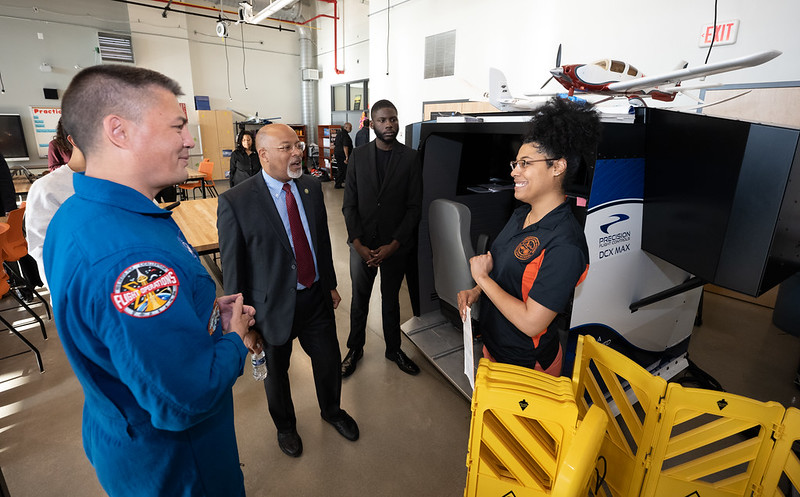A bipartisan group of lawmakers are aiming to promote US leadership in space—and ensure commercial space players are in lockstep with the government along the way.
The Advancing Humanity in Space Congressional Caucus, which launched last month, is co-chaired by Rep. George Whitesides (D-CA), Rep. Gabe Evans (R-CO), Rep. Don Bacon (R-NE), and Rep. Glenn Ivey (D-MD).
What is it? The caucus is “dedicated to US leadership in space exploration,” according to the press release. Its main missions include promoting space sustainability, boosting international partnerships, supporting policies that help the space community thrive, and educating the public on the benefits of working in orbit.
“It’s critical that we continue to explore, innovate, and expand humanity’s understanding of space and its role in shaping our future,” Evans said in a statement.
Better together: Commercial partners are essential to the health of the US space sector, and maintaining a competitive edge against adversaries. As a result, the caucus also aims to bridge the gap between commercial actors and the government.
“One of the things I’ve been finding when I talked to commercial entities, a lot of times they feel like they’re on the outside looking in with respect to the administration,” Ivey told Payload, adding that the caucus hopes to increase transparency and cooperation between the government and commercial actors.
Why now? “Given how fast space exploration is moving, it felt like the right time to bring members from both sides of the aisle together to work on policies that will keep our country competitive, while improving our economic and scientific potential,” Whitesides told Payload in a statement.
Another benefit of the caucus? Educating members on how proposed cuts to space science budgets are poised to put the US on its back foot in competition with China, according to Ivey.
Brain drain: Some of the top scientists are leaving the US, and many international students are seeking opportunities for education elsewhere, in part due to the recent cuts to science and technology funding. Ivey predicted this will have a “generational ripple effect.” The caucus hopes to retain the human talent, as well as incentivize companies to stay in the US by cutting burdensome paperwork and red tape. “It is a bad sign when we have people who have to set up offices overseas,” Ivey said.
“The human benefits are very significant if we do it the right way,” Ivey said, adding that space is also vital for advancing medical breakthroughs, and helping the agricultural sector on Earth.





